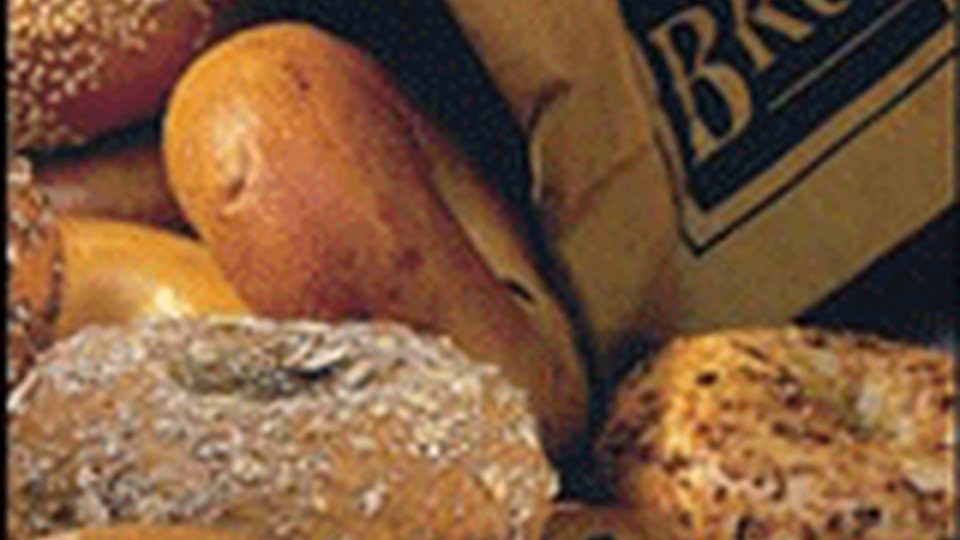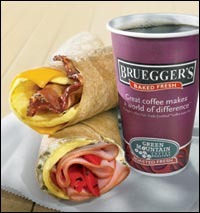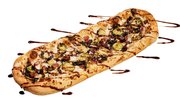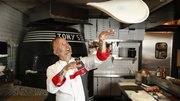Article
The Bruegger's turnaround
The once fast-growing chain has learned slow-growth is better.

June 11, 2006
When chains say they plan to open 1,000 stores in five years, Jim Greco questions the strategy behind announcing such lofty goals.
"Whenever I read those statements, all I can think about are the numerous examples where those proclamations didn't come true," said Greco, the chief executive officer of Bruegger's. "Or if they did come true, they resulted in compromises being made in order to meet the objective."
Greco would know. He took over a Bruegger's chain that had all but lost the "Bagel Wars" of the 1990s.
Within 18 months of franchising its concept, Bruegger's grew into a 155-unit chain with stores in 16 states. System wide, it earned $81 million in sales in 1994, ranking as the largest bagel chain in the nation.
 |
Jim Greco took over Bruegger's in 2003. Since then, he's re-built the menu and contributed to eight consecutive quarters of positive same store sales. |
While Bruegger's was on top, its main competitor — New Jersey-based Manhattan Bagel Inc. — collected $15 million in sales in 1994, far below the Burlington-based, Vt., chain. In 1995, Bruegger's revenue jumped to $220 million and the company expected to reach nearly 300 units by the beginning of 1996 and 1,000 stores by the end of 1998.
"We intend to dominate every market we enter," said former CEO Stephan Finn in a July 17, 1995, interview withNation's Restaurant News.
But Greco said this grow-fast attitude resulted in poor site selection for new stores and bringing aboard inexperienced franchise operators.
"We had a number of competitors. Some of them were publicly financed," Greco said. "All of them, including us, were looking to grow as fast as they could."
In 1996, Bruegger's was acquired by Quality Dining — whose share price plummeted after becoming the Bruegger's parent — only to be re-acquired by its original owners, Nord Brue and Mike Dressell, in 1997.
"We had several years of declining same-store sales and a number of closings," Greco said. "Those things caused the company to become distracted. The menu had become stale and the bakeries had become outdated. We were doing very little marketing. Internally, people were just down."
He said the restaurant industry had a notion that the bagel bakery was just a bad business idea after Einstein/Noah Bagel Corp. filed for bankruptcy in April 2000.
"This negative perception carried over to our guests who began to frequent us less and less," Greco said.
-- Jim Greco Bruegger's CEO |
The result of this perception was the closure of 200 stores from '95-2001. But things began to turnaround for Bruegger's in 2002 when it hired an investment banker to find a new CEO and equity firm.
"That investment banker put together an info packet and made an offer and got me looking for a private equity firm," said Greco, who was the CEO of a food distributor company prior to his Bruegger's post. "We met with Sun Capital and were able to work out a deal with them."
Since being acquired by Sun Capital and with Greco at the helm, Bruegger's has had eight consecutive quarters of same-store sales increases. For the first-quarter this year, the company reported comparable sales grew 8.1 percent at company locations and 5.7 percent system wide on revenues of $28.7 million. What's more is it opened 10 stores in the quarter without closing one.
Greco said the company no longer wishes to open 1,000 stores in a short period. Today's goal is to maintain quality at existing stores and open an additional 30 stores per quarter, a reasonable goal for a chain that currently has 252 stores.
What's new
When Greco took over, one of his first initiatives was to rebuild the menu.
 |
Bruegger's introduced two new wraps earlier this year. |
In the past two years, Bruegger's has introduced several salads, including Caesar Salad and Sesame Chicken Salad. Consumers' favorite is the Build Your Own Salad with a choice from three veggies, one meat and cheese, and one additional topping.
"It's important our menu has a lot of visuals," Greco said.
The chain has also revived its line of soups, adding Moosewood soups, which has been acclaimed as a driving force in the world of creative vegetarian cooking. In January, Bruegger's introduced two new wraps, the Rio Grande and the Classic Wrap.
Even with all these additions to the menu, bagels and coffee continue to be the bread winners for the chain.
"Our bagel continues to be our signature product and it wins awards year after year," Greco said. "What we have done over the last few years is ensure the entire (Bruegger's) experience lives up to the expectations the guest has, based upon the opinion they had formed on the bagel."
Bruegger's has changed the look of its dining facility, too.
"We came up with a design that is warm and inviting; casual, but comfortable," Greco said.
The company has replaced the older menu boards with updated-weekly printed banners and installed free Wi-Fi at two-thirds of its locations. But perhaps the most-important change has been at the franchise-operator level.
To be a considered franchisor, Bruegger's requires approved operators to have:
- Restaurant management experience;
- Proven business skills;
- Willingness to devote full-time efforts to building a successful business;
- Net worth of $200,000.
While these standards may seem typical, Bruegger's executives are much more careful of who they let in the door than they were 10 years ago.
"We have slowly but surely raised the benchmark for franchisees," Greco said. "But at the same time, we have raised the bar for ourselves."
 ChatGPT
ChatGPT Grok
Grok Perplexity
Perplexity Claude
Claude












